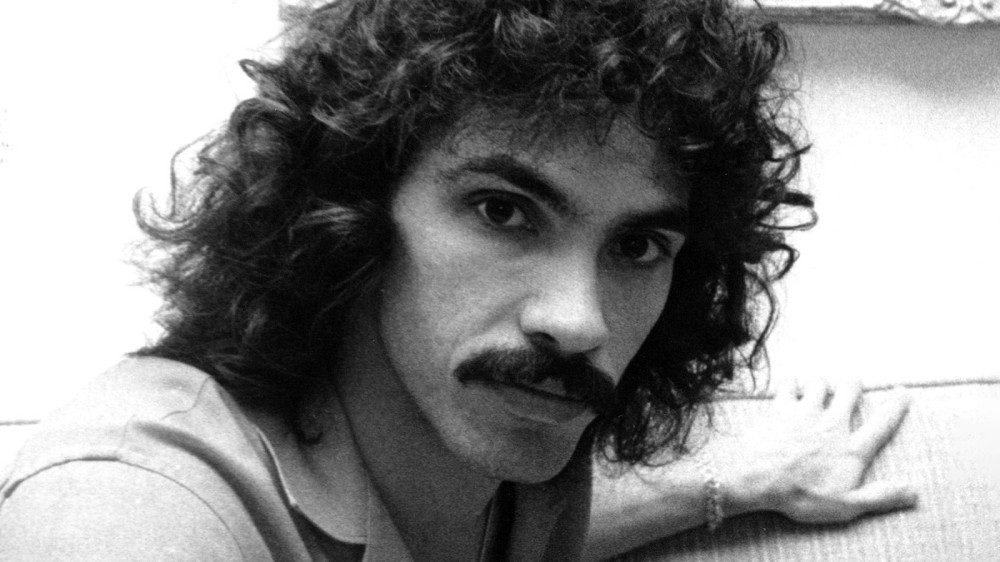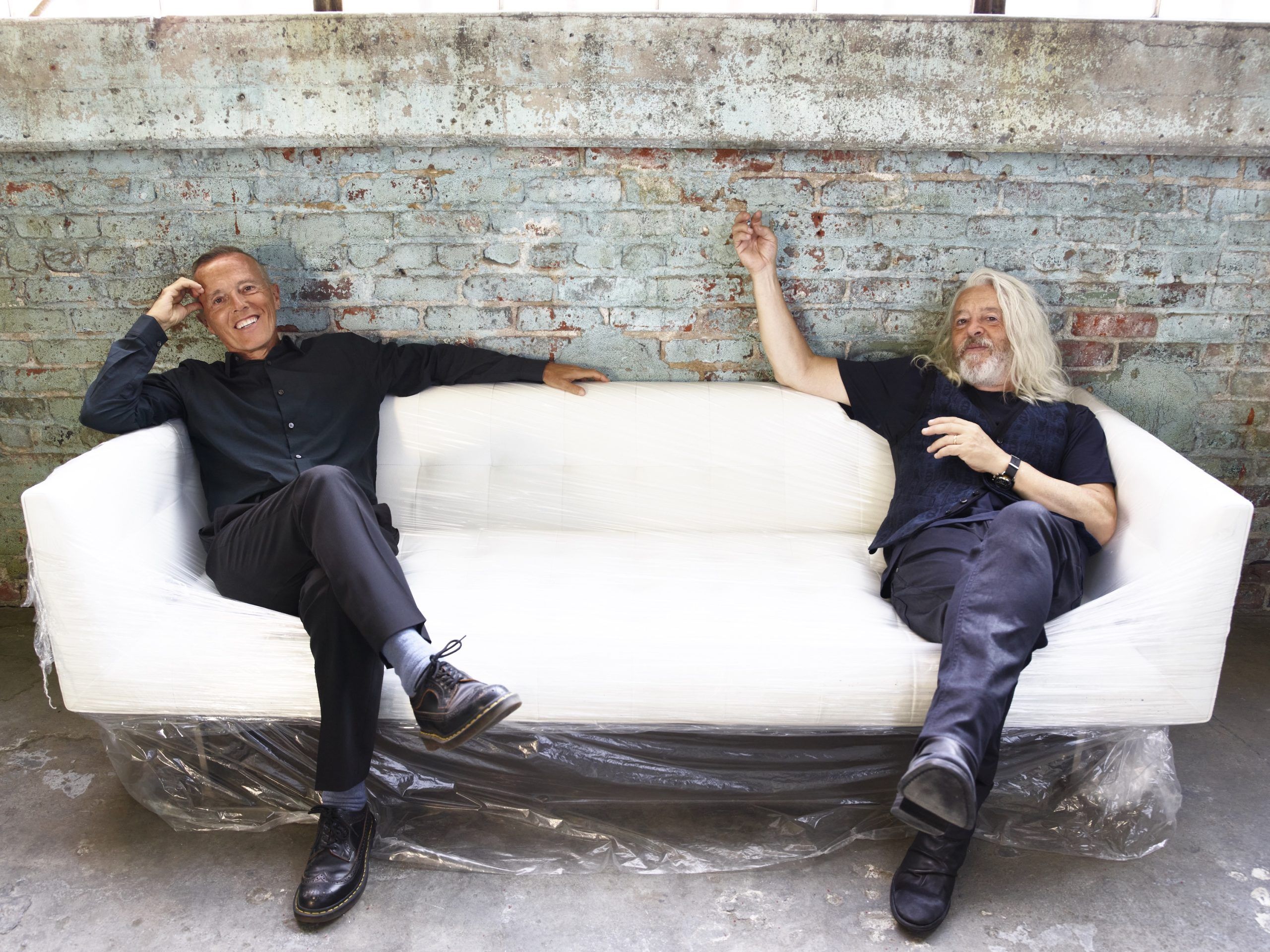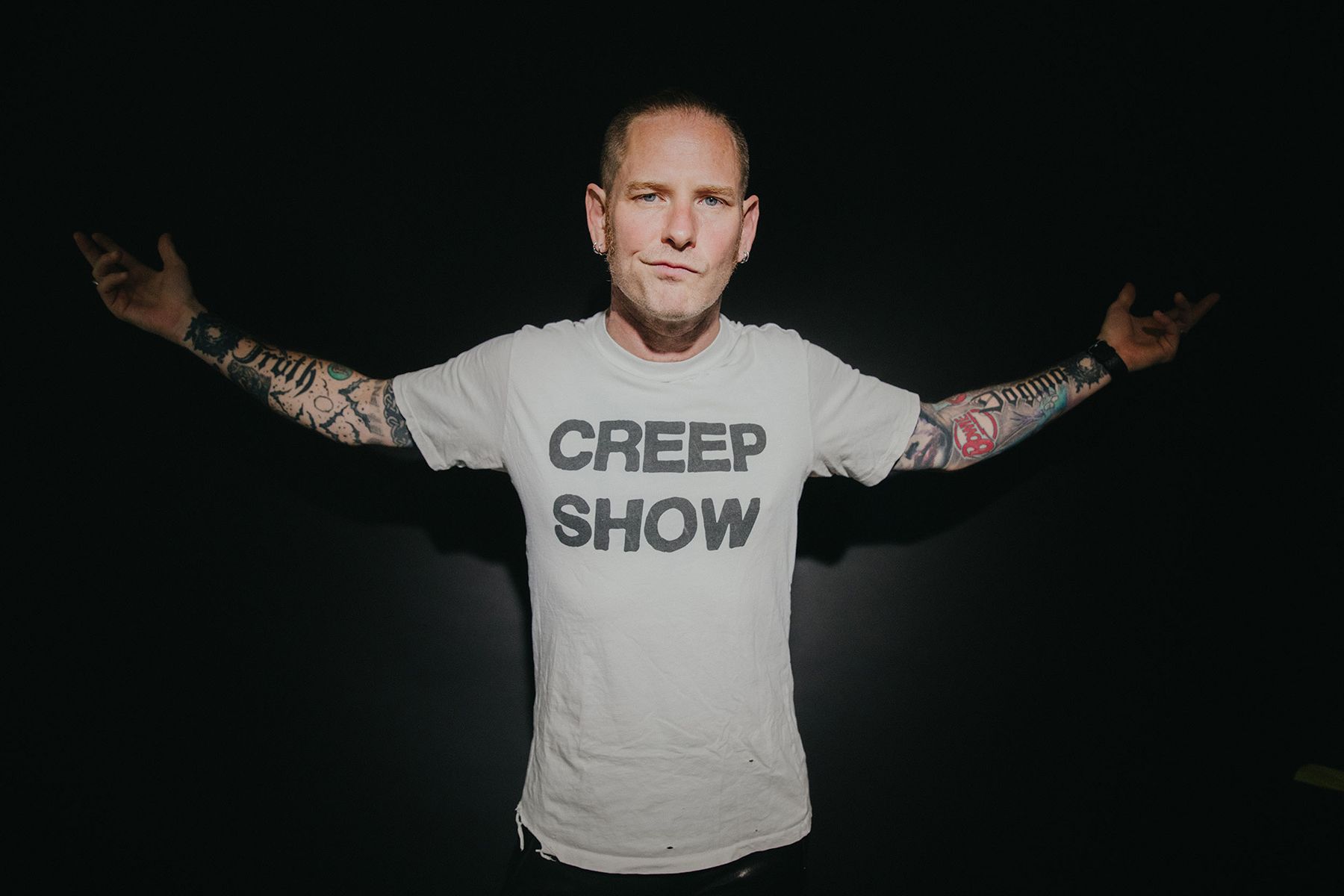
John Oates and His Mustache Are Back and Bushier Than Ever
On Dec. 21, 1990, John Oates finished a set at Japan’s Tokyo Dome, looked in the mirror and couldn’t stand what he saw. For years, the Hall & Oates co-founder’s mustache had become a cultural icon in its own right; the bushy, raven-colored gem that optically landed somewhere between adult-film star who butchers all his lines and 1980s drug kingpin who smirks while ordering your death. Now it was a symbol of what Oates considered years of bad decisions. He shaved it that night and moved on with his life.
Attempts to resurrect the brilliant bristles have veered from celebratory (induction into the Mustache Hall of Fame alongside Salvador Dali, Tom Selleck, and Theodore Roosevelt) to cringeworthy (a 2010 animated show called J-Stache that featured Oates fighting crime alongside a profane version of his mustache voiced by comedian Dave Attell; only a trailer was ever made).
But now the ‘stache — and its accompanying human — are back. The singer-guitarist returns today with “Pushin’ a Rock,” the first of six new songs scheduled for release monthly in a new deal with distribution company the Orchard.
The song’s roots go back to 2015, when Oates linked up with producer Nathan Chapman (Taylor Swift) as he thought about “struggle and the mythology of Sisyphus.” He was somewhat happy with his contribution but saw room for improvement. It remained on the shelf until the pandemic. “And now there’s a whole set of other challenges and struggles and things that I was dealing with,” Oates says. He wasn’t touring for the first time in decades and re-recorded the song, something he’s never done before.
“I called Nathan and said, ‘I want to play something for you. remember that song seven years ago?’” Oates says. “He said, “This is exactly how it should’ve sounded in the beginning.’”
As part of the push, Oates has also become an ambassador for Movember to raise awareness of mental health, cancer, and other causes. He did this the best way he knew how: He threw away his razor.
Even though the mustache has been gone for 30 years, as he sits across from me in a conference room earlier this month, it’s hard to remember Oates without one. In the past, Oates has appeared to be a man at odds with himself; a guitarist since age six who reluctantly became an MTV star and rejected (or at least accepted at a distance) the irony with which a not-insignificant segment of his fanbase treated him.
But at 74, Oates has long embraced the cultural cachet of his most famous attribute, and says he’s mentally in one of the best places he’s ever been. Hall & Oates fans shouldn’t hold their breath for another album (“I’m not interested in trying to recapture old glory”), but the Hall of Famer is ready to enter the next phase of his musical and pop cultural life.
So do you remember when you shaved the mustache off originally?
I’ve had a goatee and a very finely crafted ‘stache for many years since the early 2000s. But I shaved the ‘stache off [in 1990]. Daryl and I did a concert in Tokyo for Yoko Ono to commemorate John Lennon. That night, I just knew that something had changed. I was going through a lot of personal and professional things and I didn’t want to be that guy anymore. So I went to the hotel room, shaved the mustache off, and showed up at the airport the next morning. Everybody was like, “Whoa, what did you do?” As though this facial hair had become so integrally associated with who I was as a person. And I was changing as a person. I didn’t want to be that person. It was a rite of passage in a way.
This was your Hair Mitzvah.
[Laughs.] I hope you put that in the article. That’s all yours. But don’t make that the headline. Bury that somewhere.
You named one of your albums Phunk Shui…
Fair.
By the way, whose idea was it for that title?
I was working on an album with a guy named Jed Lieber, and we didn’t have a title for it. And we were on an airplane and he was sitting next to an Asian gal. They were talking about feng shui and she asked him what kind of music we do and he goes, “Well, it’s kind of funky” and she said, “Funk shui.” He came up and said, “Hey, man, I think we got the title.”
Got it. You said shedding the mustache felt symbolic in a way. Does growing it back also represent anything bigger than the act itself?
Yes, in a sense. I am so much more comfortable with myself now in both my life and my career that I can do anything I want. I think being associated with facial hair is not going to affect me in any way. And when I was asked to [grow it back], I thought it was definitely a worthwhile cause.
In 2010, you said one of the reasons you shaved it off was to say goodbye to your “weird, protracted adolescence.” Is mustache 2.0 the kinder, gentler, mustachioed Oates?
The 2.0 mustache is the Woke Oates.
Excuse me? Are we in the Woke Oates era?
Absolutely. in fact, I’m making a T-shirt. [Laughs, points to chest where shirt text goes.] Woke. Oates.
What does Woke Oates look like?
You’re looking at him. [Slightly awkward silence]
How would you explain it?
It’s someone who’s comfortable in their skin; someone who spent a lot of time understanding and appreciating what is really important. Let me step back. When I shaved the mustache, it also coincided with me getting a divorce. Our manager, Tommy Mottola, left me and Daryl in an uncertain place. It was the end of the Eighties. We were so big and we had so much commercial success that there’s only one way to go: down. I also sensed the change in the musical climate as we approached the Nineties with grunge. This is not a diss on grunge at all. But it was kind of an anti-harmonic period of time in music, which was 180 degrees from where I was coming from. Because of all those factors, it was a good time to step away.

Jason Lee Denton*
That’s a good point. No offense, but I can’t really think of that much you did in the Nineties.
I ended up marshaling my resources, which were considerable, and sold a lot of stuff. I left New York City and the toxic community that I was involved with, both personally and professionally. I moved to Colorado, started over again, rode my bike for two years, lived in the mountains, lived in a little tiny condo, met my future wife, built a house, had a kid. I basically checked out for the Nineties. And it was good, because it gave me a chance to not be identified as a musician for the first time in my life. When I did re-enter music in the 2000s, it was only part of my life. It wasn’t this all-consuming, career-oriented thing that I had lived with from the 1970s to the Nineties.
It’s funny to hear you say Woke Oates, because it’s such a contrast from your short-lived show J-Stache. Do you remember what the slogan for that was?
[Looks down.] No. What was it?
“Ride the Mustache.”
[Still looking down.] Oh God. [Pauses.] Look, we had signed with a new publisher and they were looking for any way to get stuff out there. I kind of went along with it as tongue-in-cheek.
I know you didn’t write it yourself, but there’s still a living Facebook page with masturbation and “sex with your mom” jokes. [Oates awkwardly laughs before grimacing deeply.] How do you look at J-Stache now a decade later?
I don’t. I don’t look at J-Stache. I would like to pretend that it never existed, but it did and that’s the way it goes. Listen, I wasn’t told a lot of things in my career. Because here, again, is just one of those things where I’m not thinking hard enough about things like that. I thought maybe it would be funny and people would get a laugh out of it. I’m a lot smarter now than I was then.
I read something about a “Stache Bash” in 2009 where you briefly grew your mustache back for the American Mustache Institute, but I still have no idea what that sentence I just said means.
Oh! Oh! That’s when I was inducted into the Mustache Hall of Fame.
There’s a Mustache Hall of Fame?
A friend of mine, Aaron, said, “We’re gonna have a Mustache Hall of Fame and you’re gonna be in it. Come on out to St. Louis.” I brought my band out and we played for Halloween.
What’s a bigger honor: The Mustache Hall of Fame or the Rock & Roll Hall of Fame?
Neither. Being in the Songwriters Hall of Fame. The Rock Hall is a great career move, but it almost feels like when someone gets an Oscar just because they never won one. But the Songwriters Hall of Fame was incredibly important to me, because to be listed in the group of Cole Porter, George Gershwin, the Brill Building writers…. So I say, “Well, do you think we would have been in the Rock & Roll Hall of Fame if we wouldn’t have had these songs?” That’s the bottom line.
You write in “Pushin’ a Rock,” “My life’s so lucky/Gone from bad to good/I made some mistakes/I been misunderstood.” You’re 74 now. What does that line mean for you?
Well, it has multiple meanings for me. I’ve been blessed and fortunate in my health, romantically, and in never having to have another job. But at the same time, rather than being misunderstood, I think I’m not understood. Due to my long-standing partnership with Daryl and the ubiquity of the Hall & Oates hits and Daryl’s very powerful presence in that image, I don’t think people actually know what I do. I think I’ve been a little bit marginalized.
You came up in the peak of MTV. Looking back, how did you feel about the way the image part of being a musician was equal to or overtaking the musicianship?
I never felt comfortable about the idea that videos were becoming so part and parcel of the music career. I always felt like they were just a great opportunity to spread the word. It was an advertisement, and I was just an “actor,” so to speak. I had an argument with Madonna about this and she said…
Wait, you had an argument with Madonna over this?
I did. It was on the panel of the [now-defunct music industry conference] New Music Seminar [in 1984]. And that exact subject came up. Now, of course, she was coming up at the time and she embraced it completely. I said something to the effect of “I never wanted to be an actor,” and she just railed on me. She said, “You don’t know what you’re talking about.” And she’s kind of brash, but she was right. She set the standard for the way the future was going to be, so there’s no dis at all. But for me, coming from where I was coming from, that’s how I felt.
Quite honestly, I never really put a lot of effort or thought about the videos artistically. To me, they were kind of goofy. We just had a laugh and jumped around and wore funny clothes. In retrospect, if I had to do anything over again, I would have paid a lot more attention to those videos. Our videos are, for the most part, cringeworthy.
You’re on TikTok now and the videos are actually pretty funny.
I don’t know. I’ve never watched it.
If you’re talking about acting and advertising your music, is TikTok the modern-day version of the music video for you?
In a sense, I guess it is. TikTok started their own [music distribution company], which is the logical conclusion of what’s happening in the world and the speed in which our world now operates and the way people digest music and entertainment. It makes perfect sense, which is great for me because now all I have to do is write hooks. [Laughs.]
I’ve always felt you were a compelling pop culture figure because people usually embrace icons sincerely or ironically, and many people like you for both. When did you begin to appreciate the irony?
When I started seeing Hall & Oates Halloween costumes in the early 2000s. And I noticed as streaming and file-sharing started becoming more widespread, younger people began to come to our shows. But they were coming with an ironic curiosity. Maybe they were turned on to the music through some of their more contemporary groups that were referencing us or by accident, but they would sometimes come in costumes with these big frizzy afros and the mustache and the Daryl 1980s hair. I think maybe they were expecting a nostalgia band who looked like some old relics from the 1970s and Eighties.
And when they realized that we weren’t — that we actually had a really good band, and that we played real music and were pretty damn good — it changed. Then they just started coming.
It’s been a decade since Hall & Oates’ last album. What’s the status of the group now?
You can ask Daryl, but my opinion is that Hall & Oates’ future is in its past. The catalogue of music that we created is evergreen, and some of it will go on forever. Some of it will remain obscure, unfortunately, due to the massive success of a few songs. Which is a shame really. I’m not interested in trying to recapture old glory. It was a moment in time. We’ve been together for over 50 years. I think 50 years is long enough to do almost anything. I don’t take it for granted at all, but if it ends, I’d be a satisfied person.
I’m happy doing what I’m doing. I feel like I’m hitting a stride. And because I’ve devoted my whole life to being part of Hall and Oates, I feel like I owe it to myself — even in my later years — to see how much I can create and what I can do. It’s really the only thing I care about at this point.
Do you still feel marginalized or misunderstood?
No, I don’t feel like that anymore. I feel like I’ve established myself among the people who are willing to delve a little bit. I can still play. I can still think. I can still see. I can still make records. And I don’t want to waste that opportunity. I will give full credit to the success of Hall & Oates that has given me that opportunity and that luxury. Because for so many creative people, their dream would be to be totally free creatively and do anything they want to do. I’ve reached that place in my life and I won’t give that up for anything better.
Last question, to settle a raging debate. How do you spell it: mustache or moustache?
M-u-s-t-a-c-h-e. I think the English like the “M-O” because they keep calling it a “Mo.” I was in England doing promotion for Movember and they wanted me to say various lines and I said something about a “stache” and they just went “Stache? It’s a Mo.”


